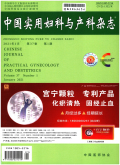中国实用妇科与产科杂志2024,Vol.40Issue(6):587-592,6.DOI:10.19538/j.fk2024060104
不孕症合并生长激素缺乏的诊治
Diagnosis and treatment of infertility with growth hormone deficiency
摘要
Abstract
Growth hormone plays a key role in regu-lating growth,development and metabolism,and also has an irreplaceable role in female reproduction.Ab-solute growth hormone deficiency(GHD)caused by various reasons also affects female reproductive func-tion,including follicular recruitment and development,ovulation and luteal function,embryo implantation and pregnancy maintenance.It is noteworthy that the age-related GH decrease may lead to a relative GHD that affects multiple reproductive pathological changes.Although controversial,there is evidence that women withrelative GHD during ovarian stimulation can im-prove the efficiency of assisted reproductive therapy,including oocyte number,fertilization rate,embryo quality,implantation rate,pregnancy rate and live birth rate,especially in patients with low ovarian response and repeated implantation failure,but it is still con-troversial.Therefore,the clinical diagnostic criteria and treatment standard of infertility patients with relative GHD need to be further clarified.关键词
生长激素缺乏/不孕症/辅助生殖技术/诊断/治疗Key words
growth hormone deficiency/infertility/assisted reproductive technology/diagnosis/treat-ment分类
医药卫生引用本文复制引用
罗璐,董可欣..不孕症合并生长激素缺乏的诊治[J].中国实用妇科与产科杂志,2024,40(6):587-592,6.基金项目
广东省自然科学基金(2024A1515011168) (2024A1515011168)

